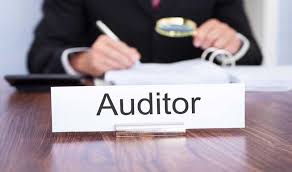 March 2024
March 2024
Audited financial statements provided to condo owners are misunderstood to their peril.
Some view audited financial statements as an indication that their corporation is in a strong financial position. Yet nearly every condominium corporation that has had a special assessment or experienced financial difficulties has likely delivered to owners recently audited financial statements accompanied by an opinion letter delivering an unqualified or clean report.
How can a condominium corporation deliver audited financial statements with a clean opinion letter yet be in financial difficulty? This is one of many questions asked by readers after Toronto Condo News published Condominium Corporation Audits which offers a general understanding of the condominium corporation audit. This article provides clarity.
The Condo Audit exists solely to ensure compliance with the Condo Act. This has nothing to do with the overall financial condition of the condominium corporation.
Understanding the Condo Audit
The Canadian Institute of Chartered Accountants (CICA) has published Accounting and Auditing Guidelines for Canadian Corporations. This 52-page document is followed by accountants who conduct condo audits. It suggests accounting principles, and audit and reporting practices to be applied to Ontario condominium corporations.
The condo audit has become routine to the extent that the CICA document includes a checklist for auditors to follow. This checklist tends to remain static while technologies, financial systems and people change. Individuals who are intent on hiding or accessing corporation funds can more easily do so when they understand how the audit is conducted. While this static checklist offers benefits, the big drawback is that some condo boards can remain compliant with the Condo Act and receive a favourable audit while failing to ensure their corporation is in a strong and sustainable financial condition.
For a condo owner concerned about the financial stability of their corporation, the Condo Audit generally fails to consider longer term financial trends. It puts faith in an accepted reserve fund study and financial plan, either of which can be flawed, without an in-depth analysis.
Project Funding Disagreements
For a condo owner concerned about the financial stability of their corporation, the Condo Audit generally fails to consider longer term financial trends. It puts faith in an accepted reserve fund study and financial plan, either of which can be flawed, without an in-depth analysis.
There is a disagreement among condo auditors about when expenditures can be funded through the reserve fund. This can allow condo boards latitude and broad discretionary authority about how to fund major projects. This discretion at times results in expenditures from the reserve fund for which funds have not been set aside.
Here we provide examples, some based on actual experiences, of what we consider to be best practices for which there may be disagreement among auditors and actions by condo boards:
- Annual patching or paving repairs to parking should be a general operating expense.
- Electronic display monitors are added during an elevator refurbishment project. Elevator refurbishment costs are included in the reserve fund study but not the display monitors. The monitors should be a general operating expense.
- Recent changes to the elevator safety code have increased the cost of elevator modernization by an estimated $20,000 to $25,000 per elevator. If your elevators are to be updated in the next few years and this specific work is not reflected in the reserve fund study, there is likely a financial shortfall that needs to be addressed.
- Upgrades to support electric vehicle charging systems should be a general operating expense and not a reserve fund expenditure. (The Condo Act clearly states this is an allowable reserve fund expenditure. We disagree.)
- Re-paving a large portion of the parking area should be a considered a major repair and replacement expense paid out of the reserve fund.
- Party room renovations are funded through the reserve fund. The reserve fund study may not have included funding for furniture. Upgrading or downgrading the quality of renovation furniture, fixtures, flooring or artwork from what is anticipated in the reserve fund study, while reasonable, impacts on the reserve fund balance. When funded solely through the reserve fund, there are no controls on how much can be spent. When upgrades are funded through operations rather than the reserve fund, there are more restrictions on limits of expenditures without seeking approval of owners. All “enhancements” to common areas should be an addition, alteration or improvement of common areas not funded through the reserve fund.
- Conversion of paved space to a playground or landscaped area should be considered an addition or alteration to the common elements not paid for through the reserve fund.
- Conversion of a common area to another use should be considered an addition or alteration to the common elements not paid for through the reserve fund.
- Converting a grassy or paved area to interlocking bricks would be an improvement not funded through the reserve fund.
When a condo board allocates expenditures to a reserve fund and not previously set aside these funds, the reserve fund gets depleted yet this may not be apparent for many years until major expenditures are necessary. When it becomes more apparent this has occurred, there can be a dramatic increase in condo fees or a large special assessment to ensure funds are available for necessary expenditures.
Reserve Fund Adequacy
A reserve fund is declared adequate by the auditor when it complies with the Condo Act. This means there is a current reserve fund study and condo fees are at a level deemed appropriate given the future expenditures in the study. Adequate from an accounting perspective presumes that a reserve fund study was conducted in an unbiased manner and using reasonable estimates. In practice, a reserve fund may not be adequate if interest or inflation assumptions are incorrect or unreasonable. Timing of future expenditures may have been adjusted by request of a condo board and impact on condo fees. Certain large expenditures may have been omitted from the reserve fund study to lower future anticipated expenditures. The condo audit does not delve in any of this.
While upgrading a building’s infrastructure to support electric vehicle charging systems is an allowable reserve fund expenditure according to the Condo Act, this approach utilizes funds set aside for other purposes. The reserve fund becomes inadequate unless replenished in some way.
In short, a reserve fund deemed adequate by the auditor may not actually be adequate to ensure it has the funds necessary to pay all of its anticipated expenditures.
Selection of Auditor
Condo owners are required to approve of the board’s recommendation of auditor for the coming year. They are allowed no further input to the selection of an auditor nor do they have access to the auditor’s report. The only information available to owners are audited financial statements and the quality of any presentation made by the auditor at the annual general meeting.
Condo owners are not provided with sufficient information to make an informed decision when approving any recommendation for auditor.
 The Condo Audit remains an important part of condominium governance. It offers limited value in understanding the financial stability of a condominium corporation, and its value should not be overstated.
The Condo Audit remains an important part of condominium governance. It offers limited value in understanding the financial stability of a condominium corporation, and its value should not be overstated.
Find Vendors in these Related Categories
- Accounting
- Building Sciences
- Condo Communications
- Condo Management
- Condo Software - Management Software, Electronic Voting and more
- Consultants and Condo Resources
- Engineering Services
- Financial Services
- Financial Services - Investments
- Financial Services - Loans
- Legal Services - Condo Law
- Legal Services - Full Service
- Mediation/Arbitration
- Meeting Minutes
- Reserve Funds and Performance Audits







